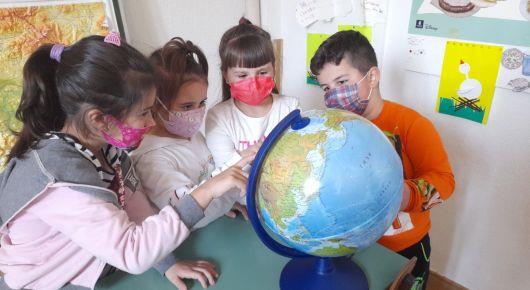In rural North Macedonia, FAO helps improve sustainable and resilient development

Rural communities in North Macedonia are shrinking. As they have in many parts of the world, rural residents have been heading towards urban areas or abroad in search of a more dynamic quality of life and better income opportunities.
Often, rural areas are marked by unemployment, limited income opportunities, outdated infrastructure, a lack of knowledge and resources for sustainable agriculture practices, and vulnerability to climate change.
However, throughout the past decade, FAO has been working with the Government of North Macedonia to help build vibrant rural communities and ensure sustainable food production. Work through the FAO Technical Cooperation Programme has focused on policy and institutional support for reforms in land tenure and management, food quality systems, value chain development, irrigation and drainage, and land consolidation.
Lately, significant milestones have been achieved in supporting several rural communities to ensure that rural areas offer attractive livelihood opportunities and a sustainable path for younger generations.
For example, FAO and the Ministry of Agriculture, Forestry and Water Economy have supported the villages of Optichari, Zhabeni, Egri in Bitola Municipality and Spanchevo, Sokolarci and Cheshinovo in Chesinovo-Obleshevo Municipality in the implementation of a local community development project addressing key social, economic and environmental challenges in respective communities.
To meet needs identified in each community, small-scale investments were made to improve rural living, especially regarding the educational environment.
These community projects took place alongside ongoing, larger-scale efforts through which FAO, the Ministry of Agriculture, Forestry and Water Economy, and other partners have supported agricultural land reforms and sustainable and climate-resilient agricultural productivity.
"It is important to take an integrated approach to community development,” said Morten Hartvigen, FAO Land Tenure Officer. “This approach not only addresses the challenge of agricultural and rural development through increased productivity and competitiveness, but it also helps ensure that growth becomes inclusive and results in improved livelihood for rural communities, including women and men, not only, but also vulnerable groups in danger of being left behind.”
Additional projects have included demonstrations of innovative climate-smart agriculture (CSA) technologies in three pilot sites: the high school ”Dimitar Vlahov” in Strumica, the village of Miravci in Gevgelija Municipality, and Resen.
FAO provided modern plastic tunnels, irrigation equipment, hydroponic and heating systems, a demonstration of outdoor systems for water conservation through subsoil irrigation, and structures to protect against hail and ultraviolet light.
The plan is for these pilot sites to be maintained by the school and local cooperatives, benefiting more than 300 high school students and young farmers as they learn and practice CSA technologies.
Moreover, with the support of the agriculture cooperative “Petrushka Reka” and the fruit growing association “Blagoj A. Kotlarski,” hundreds of active farmers in Resen and Miravci will witness first-hand the benefits of such practices as small-scale production in plastic tunnels, crop diversification, new crop rotations, UV protection nets, and more.
Viliami Fakava, FAO Plant Production and Protection Officer, said that the implementation and adoption of CSA technologies will help farmers achieve substantially improved crop production and increased resilience to climate change.
“These pilot actions will help guide larger initiatives to address climate change and transform the national agrifood system by increasing production in a sustainable manner in order to meet the Sustainable Development Goals,” Fakava said.
Interventions like these, added FAO Programme Officer Goran Stavrik, are just some examples of the targeted, catalytic and lasting effects of the FAO Technical Cooperation Programme, with tangible results leading to improved livelihoods and resilience of rural populations, among other positive impacts.
24 February 2022, Skopje, North Macedonia
